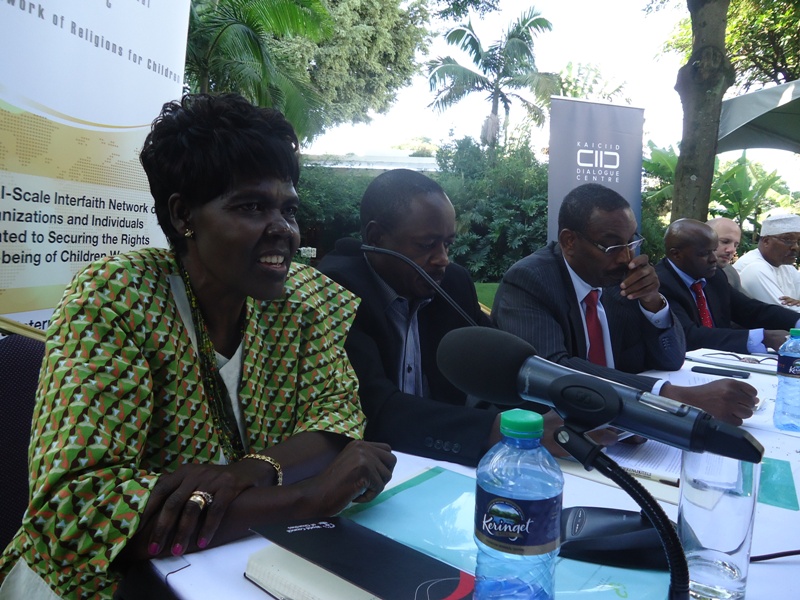By Jedidah Nguyo with Ogova Ondego
Published March 29, 2015
 Lack of awareness among the citizens of the various East African Community partner states is working against the unity of the region.
Lack of awareness among the citizens of the various East African Community partner states is working against the unity of the region.
Rather than view one another as partners, the citizens consider those of the other countries as rivals and competitors out to rob them of opportunities. A good example of this is when the association of Tanzanian tour drivers fought against allowing Kenyan tour vans into their country because, according to them, the Kenyans were going to rob them of employment. Stung, Kenya responded by restricting Tanzanian tour operators from dropping passengers at its airports in Nairobi and Mombasa. Tanzania countered by restricting Kenya Airways’ operations into its territory from 42 to 14 flights a week. The row was resolved in a meeting of the Presidents of the two countries.
RELATED: Eastern African Religious Leaders Train in Media and Information Literacy
Article 5 of the treaty on which the EAC was established envisages a people-, not politician!, centered integration process of the bloc. This is reiterated in the mission of East African Civil Society Organizations’ Forums (EACSOF), an umbrella organization formed in 2007 and which stresses that integration should work for the citizen, not just the politician (read heads of government and council of ministers). For the region to come together as a serious bloc, the citizen has to know what integration is all about. This will guard against the political whims of heads of government that saw the EAC grind to a halt in 1977 when the 1967 Treaty for East African Cooperation was dissolved due to ideological differences that could not be resolved.
Each EAC partner state is expected to hold civic education campaigns to enlighten its citizens on the EAC. Each state has a Ministry of East African Community Affairs that should be at the forefront. But citizens across the region remain clueless as to what this EAC is all about. Consequently, the people are not able to contribute to the harmonisation process.

To be fair, each EAC partner state has taken measures to enhance sensitization and awareness in its jurisdiction: Tanzania and Rwanda have each had radio shows dedicated to the EAC sensitisation campaign; the EAC anthem is sang in every public function in Uganda; Burundi has placed billboards with EAC messages at strategic points; and Kenya launched an EAC public week in public universities and also held cross border campaigns. While these may be commendable measures, they do not go go far enough since they do not reach the grassroots where it matters.
RELATED: Uganda Marks World Inter-Faith Harmony Week, Stresses Love and Dialogue
Targeted and regular media campaigns would be a great tool to sensitize and raise awareness to the public on this issue. Besides radio and television, the Ministry of East African Affairs in each partner state ought to look for ways of reaching out to the grassroots.
The EACSOF was formed in 2007 with the aim of building a knowledgeable and empowered civil society in the region that confidently articulates the interests of the citizens to the EAC Secretariat in the northern Tanzanian town of Arusha. The EACSOF draws its composition from regional organisations, national Civil Society Organization (CSO) networks, Alliances and Coalitions, Non Governmental Organizations (NGOs), Faith -Based Organizations (FBOs),Community-Based Organisations (CBOs) and individuals.

Addressing religious leaders drawn from the EAC in a conference on interreligious collaboration to strengthen peace and security in EAC which was held in the Rwandan capital, Kigali, on September 16, 2014, EAC Secretary-General Richard Sezibera said the contribution of FBOs and Faith communities was paramount to the EAC. He noted that the EAC must engage and collaborate with religious leaders and religious communities in order to promote effective regional integration.
RELATED: Eastern Africa Kiswahili Commission Formation and Its Implication for the Film Market
Effective integration can only be achieved if citizens of partner states are well informed about the EAC. This calls for intense and sustained sensitisation and awareness campaigns by governmental, inter-governmental and non-governmental organisations. FBOs would play a crucial role in the campaign in a region whose citizens are as highly religious as the EAC. Training religious leaders on the integration process, therefore, would go a long way in ensuring that information trickles down to that citizen in the most remote areas of the region as almost everyone attends religious ceremonies and meetings.

Currently, FBOs do not seem to be actively engaged with the EAC integration process. While they may comment on national issues ranging from politics to health and education, few of them ever mention anything to do with the EAC integration. Thus the citizens remain uninformed and cannot meaningfully contribute to the regional harmonisation process. There is no way EACSOF can claim to represent the EAC citizen at the EAC Secretariat if EACSOF itself isn’t getting the views of these citizens from the grassroots.
The integration process cannot succeed if the citizens remain spectators and cheerleaders in a game played by politicians only.





